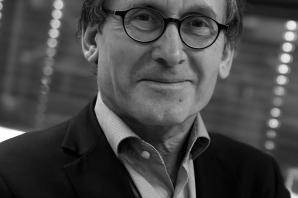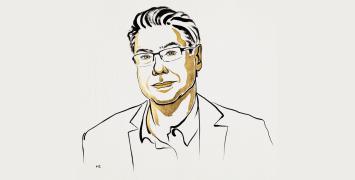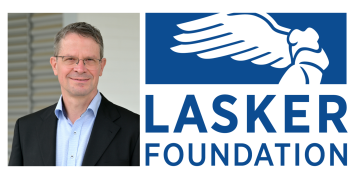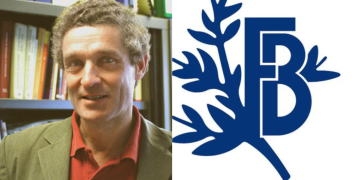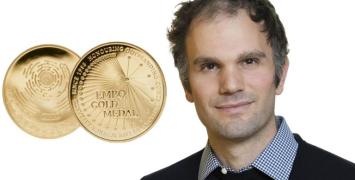Nano-motors that open giga-opportunities
Ben Feringa is a Professor in Organic Chemistry at the University of Groningen and the pioneer of rotary molecular motors, the smallest machines in the world of the size of individual molecules.
In 2016, Prof Feringa was awarded the Nobel Prize in Chemistry for his work on synthetic chemistry, leading to the design and synthesis of novel molecules and nanomaterials, with machine-like functions. These molecular nanomachines can respond to stimuli from their environment, be employed in the self-assembly of nanostructures or regulate DNA transcription, with potential applications in the medical field and targeted treatments.
Originally published in March 2017 as part of the multimedia campaign "ERC - 10 years – 10 portraits."
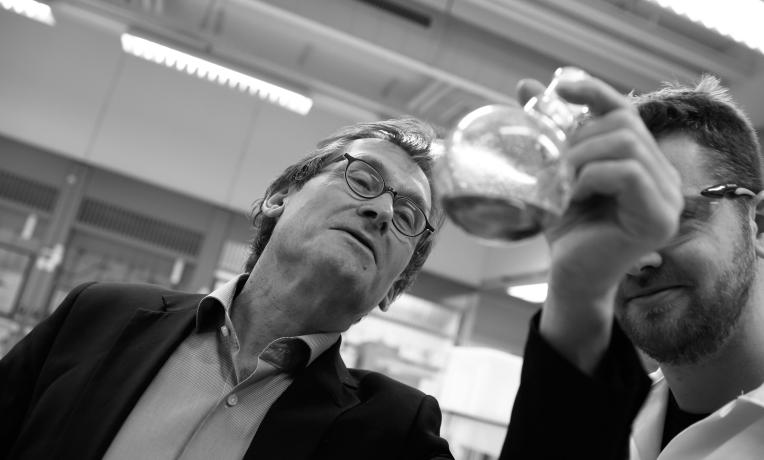
From a very early age I had this interest in nature, in asking questions, how and why. I wanted to discover and to know everything. As a small boy I grew up in a farmers' family. I was in the fields a lot with my father. And we discussed how from a tiny seed a beautiful crop could grow. Or how the water flows or how the clouds in the sky are formed. And we were discussing all this beauty of Mother Nature. My father was a very encouraging and stimulating figure for me.
When I studied chemistry here at the University of Groeningen, I had an American professor, Professor Hans Wynberg, who was a really inspiring mentor. I still remember when I made my first new molecule. I got very excited and he encouraged me a lot, saying: “Ben, this molecule has never been made by anybody in the world.”
What we discovered is the world's first molecular rotary motor, a tiny motor of one nanometre, or one billionth of a metre in size, which can rotate like a propeller. And then we designed a four-wheel nanocar, a kind of molecular car with four wheels which are rotary motors.
It's a bit like science-fiction of course what the potential of all these things could be. Ultimately, maybe in fifty years from now, tiny robots which get injected into your blood veins could go for a defected cell, maybe a tumour, and repair it. Receiving the Nobel Prize came as a big surprise. The highest award that a scientist can get - it's like a dream. But it also changes your life in the sense that, for instance this morning, I biked to the lab and a lady biking next to me said: “Ah, congratulations! You are the Nobel laureate, we are so proud of you!”
I was in the privileged situation that we got the ERC grant to support our research. And I cannot emphasise enough how important the ERC scheme has been in the past ten years to support science in Europe. You need to get that kind of funding for challenging projects, where you can't immediately tell what their application will be next year, but that will open up entirely new opportunities both for society and industry in the years to come.
I spend a lot of time on research with my team, but you should not forget that I'm also teaching. And I think we cannot encourage young people enough to go into education, to go into research, to go into building our future.
Watching this video you are accepting Youtube cookies policy

